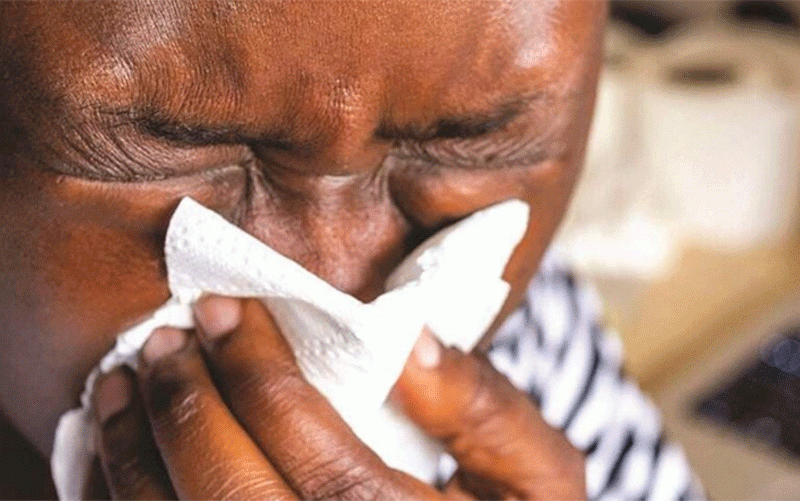
THE World Health Organisation (WHO) has warned of an increase in COVID-19 cases at a time when Zimbabwe is experiencing a deadly flu wave, which some believe is a reincarnation of the COVID-19 virus.
The government, however, allayed fears that the flu outbreak is linked to COVID-19 insisting that it is an ordinary strain associated with the cold weather.
In a letter addressed to Health and Child Care secretary Aspect Maunganidze, WHO representative to Zimbabwe, Desta Tiruneh, said cases rose in some countries among pilgrims returning from the recent Hajj in Mecca.
“Countries with returning pilgrims carry a risk of a rise in new COVID-19 infections. All countries concerned have been advised to heighten their readiness measures in case of a surge in cases,” he said.
Tiruneh said WHO member States should adhere to the International Health Regulations and not interfere with international travel, but instead, strengthen their surveillance and risk communication.
WHO also proposed measures that could limit further spread of the virus, including heightening COVID surveillance by screening at points of entry to identify (symptomatic) infected persons.
“Knowing that the majority of cases may be asymptomatic and in view of limited testing advise all returnees to self-isolate for five days for those without symptoms and seven days for those with symptoms,” WHO said.
“Emphasise personal protection by use of masks, hand washing and avoiding public gatherings through risk communication activities.
- Young entrepreneur dreams big
- Chibuku NeShamwari holds onto ethos of culture
- Health talk: Be wary of measles, its a deadly disease
- Macheso, Dhewa inspired me: Chinembiri
Keep Reading
“Develop and run appropriate messages on electronic billboards at the airports on the current situation, risk of infection, prevention and where to seek care for the sick.”
Tiruneh called on the government to empower citizens to seek care when they do not feel well, but home care is recommended for those with mild symptoms.
“Notify health facilities of the potential increase in cases and the need for raised index of suspicion for COVID-19, especially in situations with limited testing capacity,” he said.
Tiruneh encouraged the government to ensure the availability of enough oxygen in health facilities for care of acute cases.
“Undertake sufficient communication to the public to take personal responsibility and isolate themselves if they suspect to be infected and to seek care when ill,” he said.
In May, government allayed fears of a resurgence of the COVID-19 pandemic following a spike in flu-like illnesses in the country.
In a statement issued on May 26, Health and Child Care secretary Aspect Maunganidze said the flu-like illnesses witnessed in the country were due to a common cold.
“The Ministry of Health and Child Care would want to reassure the public that the flu-like illnesses seen in the country are due to the common cold.
“The winter season is associated with increased incidence of common colds and that is what has been seen so far,” Maunganidze said then.
“The cases are neither due to COVID-19 nor other new viruses. There is no viral pandemic in Zimbabwe.
“The public is advised to lead healthy lifestyles, take lots of fluids, keep warm and where necessary take over-the-counter common cold remedies.”
Yesterday, Medical and Dental Private Practitioners of Zimbabwe Association president Johannes Marisa, while calling for calm, advocated increased surveillance, especially on ports of entry.
“There is nothing much to worry about because COVID-19 never disappeared in totality. The only thing required is to do prompt testing for suspected cases and continued surveillance on confirmed cases,” he said.
“It is only that numbers were insignificant and it’s now a few countries still experiencing it, otherwise its business as usual,” he said.
However, Health and Child Care deputy minister Sleiman Timios Kwidini has said Zimbabwe has not had any cases of COVID-19.
“Our surveillance team is always on the ground looking out for anything amiss. For now, there is no COVID-19 in the country and there is no threat,” he said.
“In the event of a threat, we will notify the public just as we did with the flu strain. We are always on high alert and our teams are ready to act. People need not worry because for now there is no COVID-19 that has been detected.”










